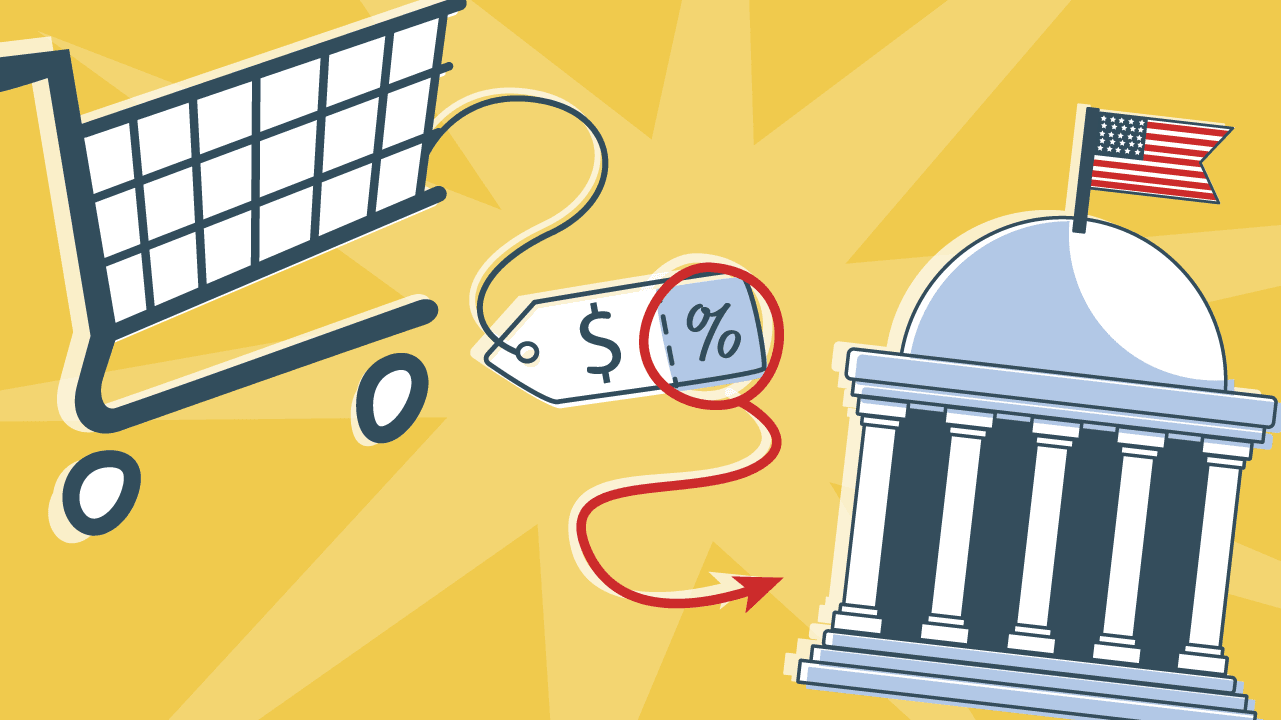You're here:
What is a Sales Tax (And Which States Have One)?
In this article

“What is a sales tax” sounds like a pretty simple question. If you’re like most US consumers, sales tax is the separate fee above and beyond your total purchase price that’s added automatically when you swipe your card at the register.
(And no, the purpose of it isn’t just to confuse foreign visitors.)
Sales tax gets a lot more confusing when you’re the one selling those items. Are you required to charge sales tax to everyone who buys from you? Does it vary by state? Do you charge different amounts for in-person sales than for online transactions? Are digital products handled the same way as the sale of physical goods?
Never fear - Quaderno is here. Let’s clear up some common misconceptions about sales tax, including where and how it’s charged in the US.
What is a Sales Tax?
At the most basic level, US sales tax is a percentage fee placed on the “sales or lease of goods and services in the United States.”
Unfortunately, applying this general rule is hardly straightforward. Here’s why:
- Some US states don’t charge a statewide sales tax, but they may allow cities and counties to charge local taxes.
- Not all goods are subject to tax upon purchase. For example, although the sale of gift cards is not subject to sales tax, purchases made with the cards may be charged sales tax.
- Some organizations are exempt from sales tax - typically if they’re purchasing goods that’ll be transformed to create other goods. For instance, restaurants don’t typically pay tax on the ingredients they buy, even if they pay tax on other non-consumable goods.
- Most US states apply sales tax to at least some services, but even in these cases, not all services are subject to consumption tax. Those that are offered alongside the sale of physical goods - such as printing - are most likely to be taxed in states that allow for sales taxation of services. Other services, including medical or dental services, are rarely subject to sales tax.
Confused yet? It gets worse when you take the impact of the internet into account.
How US eCommerce Sellers Pay Sales Tax
In June 2018, the Supreme Court closed a major loophole for consumers, ruling that retailers may be required to collect sales tax on online purchases - even if they don’t have a physical state tax nexus in consumers’ states.
To date, at least 21 states have passed “economic nexus” laws requiring that sellers collect internet consumption tax in states where they don’t maintain a presence. However, standards are uneven from state to state. In Michigan, for example, only retailers with sales exceeding $100,000 or 200 transactions with Michigan consumers are required to collect sales tax.
* Both conditions at the same time↵
Given how complicated tax requirements can be, it’s best to work with a partner that understands the ins and outs of them. Let Quaderno calculate the right tax for you every time, in every situation.
Want to test it out for yourself? Give sales tax a whirl on our free sales tax calculator. Just enter in the base price and zip code and we'll take care of the rest.
Note: At Quaderno we love providing helpful information and best practices about taxes, but we are not certified tax advisors. For further help, or if you are ever in doubt, please consult a professional tax advisor or the tax authorities.
